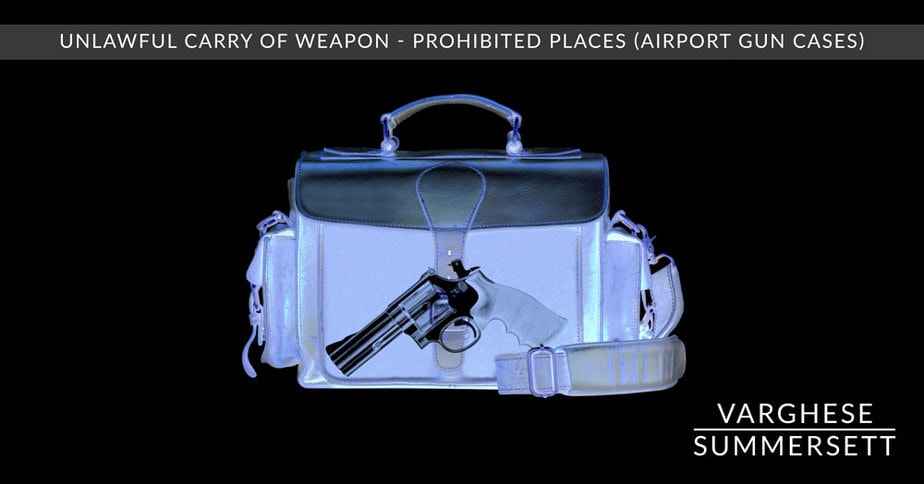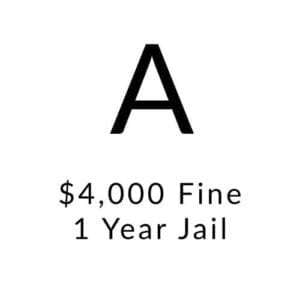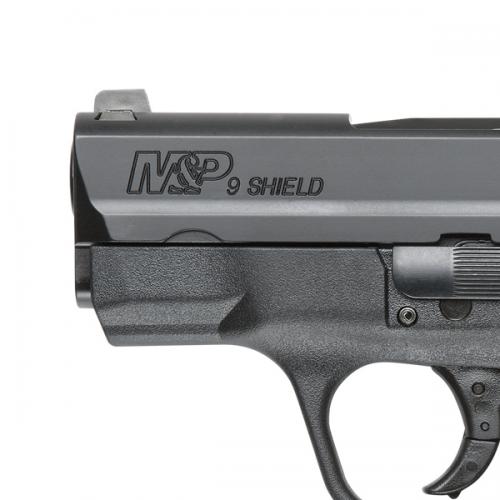
Unlawful Carry at an Airport | Prohibited Places
What Happens If You Accidentally Bring a Gun into the Airport?
Picture this: You’re standing in a long security line at the airport. You’re late for your flight, your phone is ringing and you’ve got less than 30 minutes to be in your seat for takeoff. The last thing on your mind is whether or not you left a handgun in your bag or briefcase. If you live in Texas, chances are you have a few (or more) guns. Here’s what will probably happen if you are caught in the airport with a gun:
1) You will likely be arrested. If you have a license to carry, the Transportation Security Administration has the discretion to arrest you or tell you to turn around and remove it from the premises. If you don’t have a license to carry, you will be arrested. Again, there’s a high probability that you will be taken to jail if you bring a gun through security.
2) You are probably going to miss your flight. Being arrested often takes time, and even if you did arrive at the airport the recommended two hours early, you probably will not get back to the gate in time to make your flight.
3) Your gun will be seized. You may or may not get it back. Many judges do not authorize weapons to be released back to individuals who were arrested.
4) Your case will be filed with the Tarrant County District Attorney’s Office if you were arrested at DFW International Airport. It will be filed with the Dallas County District Attorneys if you were arrested at Dallas Love Field Airport.
5) You will be charged with unlawful carry of a weapon, which is either a third-degree felony or a Class A misdemeanor depending on the circumstances.
In this article, we will explain the consequences of bringing a gun into an airport in Texas, but first, please watch this highly informative video by Board Certified Criminal Defense Attorney Benson Varghese.
Four Texas Airports are Among Top 10 for Firearm Discoveries
Thousands of guns are discovered in carry-on bags each year, resulting in arrests and fines. Last year, the Transportation Security Administration detected 5,972 firearms at airport security checkpoints across the nation. And if there is any doubt that Texans like their guns, consider this: Four Texas airports made the list of Top 10 Airports for Firearm Discoveries – with DFW coming in second.
- Hartsfield-Jackson Atlanta International (ATL): 507
- Dallas/Fort Worth International Airport (DFW): 317
- Houston’s George Bush Intercontinental Airport (IAH): 245
- Phoenix Sky Harbor International Airport (PHX): 196
- Nashville International (BNA): 163
- Denver International Airport (DEN): 141
- Fort Lauderdale-Hollywood International Airport (FLL): 128
- Orlando International Airport (MCO): 124
- Louis Armstrong New Orleans International (MSY): 119
- Salt Lake City International Airport (SLC): 115
Many of the arrests stemmed from passengers who simply forgot their gun was in their carry-on bag, not individuals with ill intent.
Places Weapons Prohibited – Generally
In the state of Texas, there are certain places where firearms are prohibited and the secure area of the airport is one of them. This prohibition extends to people who are otherwise lawfully licensed to carry a concealed handgun. However, to be guilty of this offense, the person must intentionally, knowingly, or recklessly possess a firearm, illegal knife, club, or other prohibited weapon.
The state of Texas prohibits weapons in the following places:
- Federal building
- Schools and other educational institutions; (Learn about: Campus Carry in Texas)
- The grounds or buildings where school-sponsored activities are occurring;
- At polling places on election day or during early voting;
- At court, or court offices, unless the weapon is possessed with written court authorization or other written regulations;
- On racetrack premises;
- Within the secured portion of the airport. The exception to this is when the firearm is checked as baggage, consistent with both federal and state laws, before the firearm enters the secured area;
- Within 1,000 feet of a location where an execution is to take place, under Article 43.19 of the Code of Criminal Procedure, on the day the execution is scheduled, provided the person has received prior notice being within 1,000 feet of the premises is prohibited. The exception to this is where a person is in lawful possession of a firearm in their residence or at their job, or in a car being driven on a public road within 1,000 feet of the premises;
- At a public high school, collegiate, or professional sporting event;
- At a correctional facility;
- At hospitals and nursing homes;
- At amusement parks.
Certain people are exempt from the prohibition on weapons in certain places. Exempt persons include:
- Those traveling to or from a person’s workplace as a member of the national guard;
- A member of the armed forces;
- A prison guard;
- A security officer of the Texas Private Security Board if they are in uniform and the firearm is in plain view;
- Security officers in uniform with the weapon in plain view, or out of uniform with the firearm concealed.

Unlawful Carry at an Airport – Prohibited Place (Felony)
Texas Penal Code Section 46.03 states that a person commits an offense if he or she intentionally, knowingly, or recklessly possesses a firearm when going into a secured area of an airport. This means that once you pass that security threshold – even if you accidentally carried a firearm on your person or in your bag – you have committed a crime. Carrying a weapon in a prohibited place is a third-degree felony, punishable by up to 10 years in prison and a maximum $10,000 fine.
Unlawful Carry Weapon (UCW) (Misdemeanor)

In some instances, the state may choose to file the case as a misdemeanor charge of Unlawful Carry of a Weapon under Section 46.02 of the Texas Penal Code. Under this statute, it is illegal to intentionally or knowingly carry a handgun on a premise not owned or controlled by the carrier when the person carrying the handgun is not inside or directly en route to his/her motor vehicle. If the State files the case without the Prohibited Places language, it is a Class A misdemeanor, punishable by up to a year in jail and up to a $4,000 fine.
Are there any exceptions for CHL/LTC holders?
Actually, yes. In September 2015, the Texas Legislature created an exception that may be applied to CHL (now LTC) holders. Section 46.03 of the Penal Code was amended so that instead of placing a valid LTC holder under arrest, TSA agents may ask the individual to exit the secured area. An individual asked to exit the secured area must immediately comply.
This new law was passed in hopes of differentiating between individuals who intentionally, knowingly, or recklessly bring a firearm into a secured area and CHL holders who simply forgot that they had their handgun at the airport.
Can I Legally Fly With a Gun?

Yes, there are ways to legally fly with a gun. The TSA and Texas laws allow guns to be transported, as long as it is done properly in a checked bag. Under TSA regulations, the firearm must be unloaded, declared, and transported it in a locked hard-sided case with a key available for the TSA to inspect the weapon. It is also imperative for travelers to make sure their destination allows for the weapon to be transported there. (Some states do not allow this and you may be arrested if you try to bring a gun onto a plane even in a checked bag. New York and New Jersey in particular have this law.)
From TSA:
- Travelers must declare all firearms to the airline during the ticket counter check-in process.
- The firearm must be unloaded.
- The firearm must be in a hard-sided container.
- The container must be locked. A locked container is defined as one that completely secures the firearm from being accessed. Locked cases that can be pulled open with little effort cannot be brought aboard the aircraft.
- If firearms are not properly declared or packed, TSA will provide the bag to law enforcement for resolution with the airline. If the issue is resolved, law enforcement will release the bag to TSA so screening may be completed.
- TSA must resolve all alarms of checked luggage. If a locked case containing a firearm alarms, TSA will contact the airline, who will make a reasonable attempt to contact the owner and advise the passenger to go to the screening location. If contact is not made, the container will not be placed on the aircraft.
- If a locked container alarms during screening and is not marked as containing a declared firearm, TSA will cut the lock in order to resolve the alarm.
- Travelers should remain in the area designated by the aircraft operator or TSA representative to take the key back after the container is cleared for transportation.
- Travelers must securely pack any ammunition in fiber (such as cardboard), wood or metal boxes or other packaging specifically designed to carry small amounts of ammunition.
- Firearm magazines and ammunition clips must be securely boxed or included within a hard-sided case containing an unloaded firearm.
- Small arms ammunition, including ammunition not exceeding .75 caliber for a rifle or pistol and shotgun shells of any gauge, may be carried in the same hard-sided case as the firearm, as long as it follows the packing guidelines described above.
- TSA prohibits black powder or percussion caps used with black powder.
- There are certain limited exceptions for law enforcement officers who may fly armed by meeting the requirements of Title 49 CFR § 1544.219. Law enforcement officers should read our policies on traveling with guns.
Are There Also TSA Penalties for Bringing a Gun into an Airport?
Let’s say you arrive home after work one day and a pile of mail is waiting for you. Magazine, toss. Credit Card application, toss. TIME magazine, maybe later. TSA Notice of Violation…wait, what?
When you present yourself to an airport for security inspection, you are subject to prosecution under state and federal law. The TSA has a duty to protection the nation’s transportation systems. Part of that mission is ensuring the Transportation Security Regulations (TSRs) are enforced. TSRs include the prohibition of firearms, regardless of whether they are loaded or not. When you are caught, whether intentionally or unknowingly, with a firearm at an airport, you will receive a civil penalty. The TSA has the authority to assess civil penalties of up to $13,333 for travelers who bring weapons to airports. The penalty for carrying an unloaded handgun into a checkpoint can range from $1,960 to $3,920, for example. When you receive notice of this civil penalty, you have five options to pursue:
- Pay the Proposed Civil Penalty
Paying the Proposed Civil Penalty involves either submitting payment of the fine by check, money order, or credit card to the TSA.
- Submit Evidence for Consideration
Submitting Evidence for Consideration involves demonstrating that the TSA violation did not occur as alleged for that the civil penalty proposed is not warranted considering all of the circumstances.
- Submit Information for Consideration in Support of a Reduction of the Civil Penalty
Submitting Information for Consideration in Support of a Reduction of the Civil Penalty involves submitting a written request for reduction of the proposed TSA Civil Penalty due to financial hardship or an inability to pay.
- Request an Informal Conference
Request for an Informal Conference involves a teleconference hearing with a TSA Agent concerning the facts alleged giving rise to the civil penalty and a production of mitigating facts combined with a request for reduced penalty.
- Request a Formal Hearing
Request for a Formal Hearing involves an Administrative Law Judge and a TSA Agent filing a complaint to commence the adjudication process. In this hearing, the TSA will have the burden of proof and both sides will have the opportunity to present witnesses. If you are not pleased with the outcome of the hearing, you may appeal the TSA Decision Maker and ultimately the U.S. Court of Appeals.
Arrested for carrying a gun into a North Texas airport?
If you or a loved one was arrested for carrying a gun into a North Texas airport, call us today at 817-203-2220 for a free consultation with an experienced criminal defense attorney. We have successfully defended numerous people who have accidentally carried a gun into an airport. It’s actually a very common mistake. We will help you navigate the justice system and will do everything in our power to resolve your case without a conviction or additional time in jail. We have a proven record of results in handling airport gun cases.



